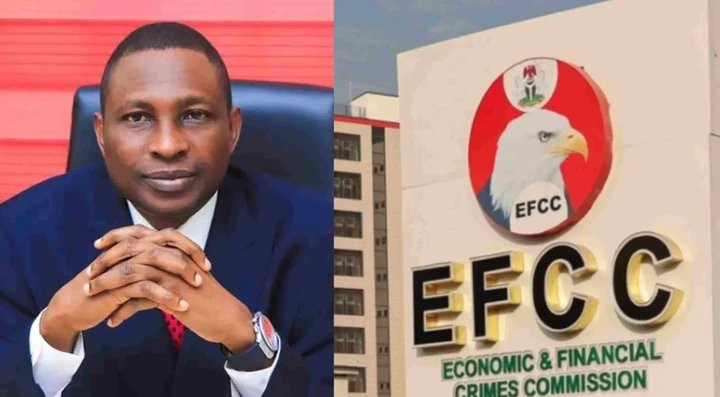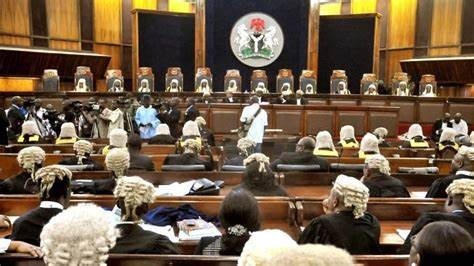Economy
EFCC boss exclude politicians, blames yahoo boys for Nigeria’s global image crisis
DDM News

The Chairman of Nigeria’s Economic and Financial Crimes Commission (EFCC), Mr. Ola Olukoyede, has blamed cybercriminals, popularly known as Yahoo Boys, for dragging the country’s image into global disrepute.
In a video released on the EFCC’s official X (formerly Twitter) account on Monday, Olukoyede condemned the widespread involvement of Nigerian youths in internet fraud, describing it as a “national shame.”
Diaspora Digital Media (DDM) gathered that Olukoyede’s statement comes amid growing international concern over the surge in cyber-related crimes linked to Nigerians, particularly the younger demographic.
He lamented how the actions of Yahoo Boys have caused Nigerians to be viewed with suspicion abroad.
“Today, if you travel with a Nigerian passport, the green one, you are treated with scepticism,” he said.
“In queues, once you present a Nigerian passport, people become wary. Sometimes, you are pulled aside for extra security checks. This is the shame that these internet fraudsters have brought upon us.”
Olukoyede revealed how the EFCC faces enormous challenges when trying to collaborate with international agencies, especially in asset recovery efforts.
He stressed that the prevalence of cybercrime makes Nigerian officials appear complicit or unserious in the fight against fraud and corruption.
“When I meet foreign agencies or governments, they always mention what they see on social media,” he stated.
“Yahoo Yahoo is a national crisis. It’s sad that many young Nigerians no longer believe in hard work.”
The EFCC chairman’s remarks sparked mixed reactions from the public.
While some Nigerians agree that cybercrime has harmed the nation’s reputation, others argue that the country’s image problems go far beyond online scams.
Critics pointed out that corruption among Nigeria’s political elite has done equal, if not greater, damage to the country’s international standing.
For years, high-ranking government officials and political leaders have been at the centre of massive corruption scandals, many of which made global headlines.
One of the most infamous cases remains that of the late military dictator, General Sani Abacha, whose stolen billions are still being repatriated decades after his death.
Another high-profile example is James Ibori, the former Governor of Delta State, who was convicted in the United Kingdom on charges of theft and money laundering.
Diepreye Alamieyeseigha, the former Governor of Bayelsa State, also infamously escaped justice in the UK by disguising himself as a woman, only to be later convicted in Nigeria.
These cases, many Nigerians argue, have done more to damage Nigeria’s image than the activities of Yahoo Boys alone.
Observers note that despite the EFCC’s public focus on cybercriminals, there appears to be less visible progress in fighting corruption within the corridors of power.
They argue that the agency is often more aggressive in pursuing low-level internet fraudsters than powerful political figures, many of whom continue to operate with impunity.
In response, Olukoyede has maintained that the EFCC is committed to prosecuting corruption at all levels and continues to face serious institutional, political, and social challenges.
Nonetheless, the agency’s focus on Yahoo Boys has become increasingly controversial in public discourse.
Some civil society organisations have called on the EFCC to intensify its efforts in fighting institutional corruption while also addressing cybercrime.
They warn that an unbalanced approach may deepen public mistrust in the agency’s mission and reinforce the belief that the powerful are untouchable.
Meanwhile, Olukoyede reiterated that the glorification of internet fraud on social media and in Nigerian pop culture is encouraging more young people to abandon legal means of livelihood.
He urged community leaders, families, educators, and influencers to join in reorienting Nigerian youths toward integrity, diligence, and legitimate enterprise.
With Nigeria facing both economic hardship and global scrutiny, the EFCC chairman’s comments have reignited debate over the deeper roots of the country’s image problem.
While Yahoo Boys have become a visible symptom of the issue, many believe that solving the nation’s reputational crisis will require addressing the culture of impunity, misgovernance, and elite corruption that has persisted for decades.
For Diaspora Digital Media Updates click on Whatsapp, or Telegram. For eyewitness accounts/ reports/ articles, write to: citizenreports@diasporadigitalmedia.com. Follow us on X (Fomerly Twitter) or Facebook












